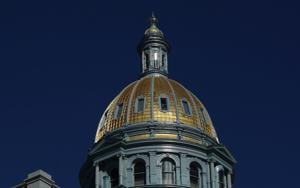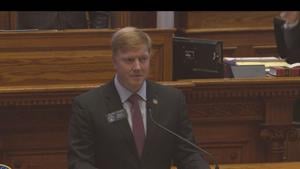(The Center Square) – The United States Department of Education announced it is investigating the California Department of Education for alleged violation of federal law due to its state law banning the disclosure children’s’ gender identities to their parents.
When entrepreneur and Trump administration member Elon Musk announced he was relocating the headquarters of SpaceX and X from California, he shared the ban in question — Assembly Bill 1955 — as a motivating factor.
“Because of this law and the many others that preceded it, attacking both families and companies, SpaceX will now move its HQ from Hawthorne, California, to Starbase, Texas,” said Musk at the time. “I did make it clear to Governor Newsom about a year ago that laws of this nature would force families and companies to leave California to protect their children.”
DOE says it is investigating California for violating the Family Educational Rights Privacy Act, which it says “gives parents the right to access their children’s educational data.”
“The California Department of Education has allegedly abdicated the responsibilities FERPA imposes due to a new California state law that prohibits school personnel from disclosing a child’s ‘gender identity’ to that child’s parent,” wrote the DOE in its announcement.
“[DOE] has reason to believe that numerous local educational agencies (LEAs) in California may be violating FERPA to socially transition children at school while hiding minors’ ‘gender identity’ from parents,” said DOE. “Given the number of LEAs that appear to be involved, [DOE] is concerned that CDE played a role, either directly or indirectly, in the widespread adoption of these practices, which appear to be required by the recently enacted California Assembly Bill 1955.”
DOE cited the supremacy of federal over state laws, and warned that “educational entities receiving federal funding are subject to FERPA and its implementing regulations,” and that “Violation of FERPA can result in termination of an educational entity’s federal funding.”
California Gov. Gavin Newsom’s office said AB 1955, which took effect on Jan. 1 this year, does not limit parents’ access to their children’s educational records, and framed the bill as measure to prevent the outing of LGBTQ+ children to their parents.
“Under California law, minors cannot legally change their name or gender without parental consent and parents are guaranteed the right to access their students’ educational records,” said Newsom’s press office. “AB 1955 does allow teachers and school districts to hide information from parents, it ensures teachers are focused on teaching and staff are not forced to forcibly out a student’s LGBTQ+ identity absent a request for records and without the student’s consent.”
Lawyer Julie Hamill of the California Justice Center, who sent a letter to the DOE requesting the investigation, responded by suggesting schools are creating non-educational records that may not be accessible to parents.
“Beyond the face of AB 1955, districts are advised to create separate files and conceal information in those files from parents,” said Hamill. “Confidential gender support plans are kept in these separate files. School districts are withholding student work from parents if the student work reveals the alternate identity a child is using at school.”
According to the California Budget and Policy Center, California is expected to receive $7.9 billion from the federal government for K-12 education in the governor’s proposed 2025-2026 budget, which includes $322 billion in state spending and $171 billion in federal spending.
Should the federal government withhold K-12 funding, and an additional $7.3 billion for higher education funding, the state could find itself in difficult financial straits, as the proposed budget includes a $7 billion withdrawal from reserves.


















































